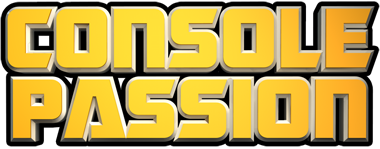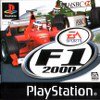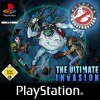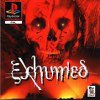Website Temporary Closed
Sony Playstation
The first conceptions of the Playstation console date back to 1988. Nintendo had been attempting to work with disk technology since the Famicom, but the medium had problems. Its rewritable magnetic nature could be easily erased (thus leading to a lack of durability), and the disks were a piracy danger. Thus, when word came out of a new optical storage technology being developed by Sony and Philips, Nintendo was interested. Nintendo approached Sony to develop a CD-ROM add-on, tentatively titled the "SNES-CD". A contract was struck, and work began.
In 1991, the SNES-CD (now titled the Play Station) was to be announced at the June CES. However, when Hiroshi Yamauchi read the original 1988 contract between Sony and Nintendo and learned that it allowed Sony 25% of the profits from the machine, he was furious. He deemed the contract totally unacceptable, and secretly cancelled all plans for a joint Nintendo-Sony SNES CD attachment.
[collapse collapsed title=read more...]
Indeed, instead of announcing their partnership, at 9AM the day of the CES, Nintendo chairman Howard Lincoln stepped onto the stage and revealed that they were now allied with Philips, and were planning on abandoning all the previous work Nintendo and Sony had accomplished. Lincoln and Minoru Arakawa had (unbeknownst to Sony) flown to Philips headquarters in Europe and formed an alliance of a decidedly different nature- one that would give Nintendo total control over its licenses on Philips machines.
The 9am CES announcement was a huge shock. Not only was it a complete surprise to the showgoers (Sony had only just the previous night been optimistically showing off the joint project), but it was seen by many in the Japanese community as a massive betrayal- a Japanese company snubbing another Japan-based company in favour of a European one was considered unthinkable in Japanese business.
Initially, Nintendo's abandonment of the joint project caused Sony to consider halting their research, but ultimately the company decided to use what they had developed so far and make it into a complete, stand alone console. This led to Nintendo filing a lawsuit claiming breach of contract and attempted, in U.S. federal court, to obtain an injunction against the release of the PlayStation, on the grounds that Nintendo owned the name. The federal judge presiding over the case denied the injunction. Thus, in October 1991, the first incarnation of the new Sony Playstation was revealed. As for the deal between Philips and Nintendo, it fell through as well. However, because of the deal, Philips was able to create games for its CD-i computer based on Nintendo licenses. The games were terrible, and seen as another attempt by Philips to market the ill-fated computer.
The PlayStation was officially launched in Japan on December 3, 1994, the USA on September 9, 1995 and Europe on September 29, 1995. In America, Sony enjoyed a very successful launch with titles of almost every genre including Toshinden, Twisted Metal, Warhawk, Philosoma, Wipeout and Ridge Racer. Almost all of Sony's and Namco's launch titles went on to produce numerous sequels.
The PlayStation was also able to generate interest with a unique slew of ad campaigns. Many of the ads released at the time of launch were full of ambiguous content which had many gamers rabidly debating their meanings. The most well-known launch ads include the "Enos Lives" campaign, and the "You Are Not E" ads (the "E" in "You Are Not E" was always coloured in red, to symbolize the word "ready", and the "Enos" meant "ready Ninth Of September", the U.S. launch date). It is believed that these ads were an attempt to play off the gaming public's suspicion towards Sony as an unknown, untested quantity in the video game market.
The first new version was actually a revision in early 1996, produced in response to complaints that PlayStations were overheating. Sony did not change the technical aspects or the cosmetics but did remove the RCA ports left over from the Japanese release. The parallel port (which was mostly unused by Sony) was also removed to reduce production costs. Sony also slightly improved the laser assembly. Many gamers experienced skipping full-motion video or dreaded physical "ticking" noises coming from their PlayStations. The seemingly universal fix for this was to turn one's PlayStation sideways or upside-down—although some gamers smacked the lid of the PlayStation to make a game load or work. This problem was carried over to many first-generation PlayStation 2s in the form of the very well known Disc Read Error message.
Sony produced a redesigned version of the original console, called the PSone, in a smaller (and more ergonomic) case which was introduced in September 2000. The original PlayStation was abbreviated in Japan to "PS" and was often abbreviated as "PSX" by American gamers, as this was Sony's internal code name for the system while it was under development (PlayStation Xperimental). This led to some confusion in 2003, when Sony introduced a PS2-derived system in Japan actually called the PSX. The PlayStation is now officially abbreviated as the "PS1" or "PSone," although many people still abbreviate it "PS" or "PSX". There were only 2 differences between the "PSone" and the original, the first one being cosmetic change to the console, and the second one was the home menu's Graphical User Interface.
A version of the PlayStation called the Net Yaroze was also produced. It was more expensive than the original PlayStation, coloured black instead of the usual gray, and most importantly, came with tools and instructions that allowed a user to be able to program PlayStation games and applications without the need for a full developer suite, which cost many times the amount of a PlayStation and was only available to approved video game developers. Naturally, the Net Yaroze lacked many of the features the full developer suite provided. Programmers were also limited by the 2MB of total game space that Net Yaroze allowed. That means, your whole game had to be crammed into the 2MB of system RAM. You couldn't officially make actual game discs. The amount of space may seem small, but games like Ridge Racer, ran entirely from the system RAM (except for the streamed music tracks of course). It was unique in that it was the only officially retailed Sony PlayStation with no regional lockout; it would play games from any territory.
Another version that was coloured blue (as opposed to regular console units that were grey in colour) was available to game developers and select press. Later versions of this were coloured green. Contrary to popular belief, the RAM was not 4 megabytes but instead the standard 2 megabytes. The console included a CD-ROM emulator board connected to a PC. It was also able to run in-development games which lacked region coding (which would be rejected by a normal PlayStation as though they were pirated copies). A few of these units eventually appeared for sale through somewhat dubious channels at high prices.
The installation of a modchip allows the PlayStation's capabilities to be expanded. This allows unauthorized copies of games to be played, but it also allows the playing of games from other regions, such as PAL titles on a NTSC console. Since modchips allow playing games recorded on a regular CD-ROM, it created a wave of games developed without official Sony approval, using free GNU compiler tools.
The console was extremely popular, spawning the so-called "PlayStation Generation". Well known titles on the PlayStation include Tomb Raider, Final Fantasy 7, Resident Evil, Tekken, Wipeout, Gran Turismo, Crash Bandicoot, Spyro, Parasite Eve, Silent Hill, and Metal Gear Solid. As of May 18, 2004, Sony has shipped 100 million PlayStation and PSone consoles throughout the world. As of March 2004, there were 7,300 software titles available with cumulative software shipment of 949 million. The PlayStation logo was designed by Manabu Sakamoto, who also designed the logo for Sony's VAIO computer products.
[/collapse]
- HOME


- PRODUCTS

- 3DO
- Amiga CD32
- Amstrad GX4000
- Atari 2600
- Atari 7800
- Atari Jaguar
- Atari Jaguar CD
- Atari Lynx
- Bandai Wonderswan
- Coleco
- Colecovision
- Famicom
- Famicom Disk System
- Grandstand
- JAMMA
- Mattel Intellivision
- MB
- Microsoft Xbox
- MSX
- Neo Geo AES
- Neo Geo CD
- Neo Geo MVS
- Neo Geo Pocket
- Nintendo 64
- Nintendo Game and Watch
- Nintendo Gameboy
- Nintendo Gameboy Advance
- Nintendo Gameboy Colour
- Nintendo Gamecube
- Nintendo NES
- Nintendo Virtual Boy
- PC Engine
- PC Engine CD
- Philips CDI
- Sega 32X
- Sega Dreamcast
- Sega Game Gear
- Sega Genesis
- Sega Master System
- Sega Mega CD
- Sega Megadrive
- Sega Nomad
- Sega Saturn
- Sony Playstation
- Sony Playstation 2
- Super Famicom
- Super Nintendo
- Texas Instruments
- Tiger Game Com
- Tomy
- Vectrex
- Japanese Video Game Imports
-

- MODIFICATIONS

- Switchless Modification
- Modification Sega 32X
- Modification Sega Dreamcast
- Modification Sega Megadrive
- Modification Neo Geo AES
- Modification Neo Geo CD
- Modification Nintendo NES
- Modification Sega Master System
- Modification Sega Mega-CD
- Modification Sega Nomad
- Modification Sega Saturn
- Modification Super Nintendo
-

- TECHNICAL INFO


- NEWS


- ABOUT US


- MEMBERS


- CONTACT US


Log on
x
Just In!












 Save time
Save time